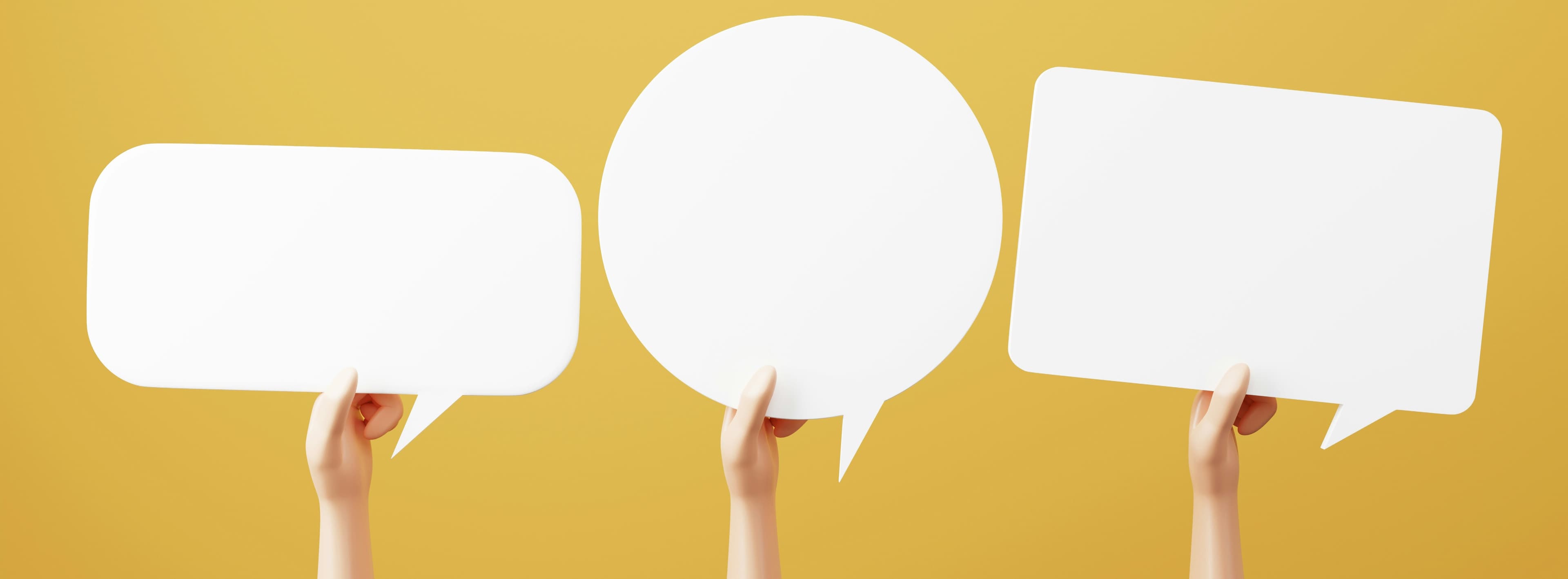Therapy for couples communication

You love each other, but lately it feels like you're speaking different languages. Conversations that should be simple turn into arguments, or worse, into silence. Maybe you're tired of the same fights, or you feel lonely even when you're together. Good news: communication is a skill, and skills can be learned. Let's explore how therapy can help you reconnect and actually hear each other again.
What is couples communication therapy?
Understanding communication breakdown
Communication problems rarely start as communication problems. They begin when life gets busy, when stress piles up, when expectations don't match, or when past hurts create walls. You might find yourselves having the same argument for the tenth time, talking in circles without resolution. One person feels criticized; the other feels ignored. Someone withdraws; someone pursues. Before you know it, you're roommates managing logistics instead of partners sharing life.
Here's the thing: most couples don't actually lack communication—they have plenty of it. What's missing is effective communication. There's a difference between talking at each other and truly connecting. Between defending your position and understanding your partner's experience. Between winning an argument and solving a problem together.
Common communication patterns that cause problems
Maybe you recognize these patterns: one person brings up an issue, the other immediately gets defensive. Someone makes a request, it sounds like criticism, and suddenly you're fighting about who loaded the dishwasher wrong five years ago. One partner shuts down and refuses to engage; the other feels desperate to resolve things right now. You find yourself thinking "they should just know what I need" or "why do we have to talk everything to death?"
Research by Dr. John Gottman identifies four particularly damaging communication patterns: criticism (attacking your partner's character), contempt (treating them with disrespect or disgust), defensiveness (playing the victim or making excuses), and stonewalling (withdrawing and shutting down). These patterns predict relationship distress with remarkable accuracy—but they can be changed.
Communication and relationship health
Communication issues affect most couples at some point. According to The Gottman Institute's extensive research, how couples handle conflict matters more than what they fight about. The American Association for Marriage and Family Therapy reports that couples therapy has one of the highest success rates in mental health treatment, with most couples experiencing measurable improvement.
The real impact of communication breakdown
Emotional disconnection
When communication fails, intimacy evaporates. You stop sharing small daily moments because it doesn't feel safe. You keep feelings to yourself rather than risk being misunderstood or dismissed. The emotional distance grows so gradually you might not notice until you realize you feel lonely in your own relationship. You're living parallel lives, coordinating schedules but not truly connecting. That feeling of "us against the world" gets replaced by "me versus you."
Escalating conflict
Poor communication turns small disagreements into explosive fights. A conversation about dinner plans becomes an argument about respect. A request to help with chores triggers a fight about appreciation. One person's hurt feelings get met with defensiveness, which creates more hurt, which creates more defensiveness. Before long, you're bringing up past grievances, saying things you don't mean, and wondering how a simple conversation went so wrong. Sometimes you fight just to feel something, because angry connection beats no connection at all.
Avoidance and withdrawal
When talking leads to fighting, you stop talking. Important issues get swept under the rug. Resentment builds silently. One partner might work late, scroll through their phone, or stay busy to avoid difficult conversations. The other might chase for connection, bringing up issues at the worst possible times out of desperation. Sex decreases because emotional intimacy has disappeared. You become excellent at surface-level logistics while deeper needs go unspoken and unmet.
Loss of trust and respect
Chronic communication problems erode the foundation of your relationship. When your partner consistently misunderstands you, you start assuming they don't care. When conversations always end badly, you stop believing things can improve. Small resentments accumulate into contempt. You start questioning whether this person is really right for you, whether they ever truly understood you. You might find yourself emotionally investing elsewhere—in work, friends, or even fantasies of other relationships—because connection at home feels impossible.
How therapy transforms couples communication
Creating a safe space for honest dialogue
Couples therapy provides something you can't create at home: a neutral third party who holds space for both of you. Your therapist won't take sides or declare who's right. Instead, they'll help you understand each other's perspectives, identify destructive patterns, and practice healthier ways of connecting. Think of it as learning a new language together—the language of emotional safety, vulnerability, and genuine understanding.
What happens in couples communication therapy
Sessions typically start with your therapist asking what brought you in and what you hope to improve. You might feel nervous about airing your relationship struggles in front of a stranger, but good therapists know how to make this process feel less exposed and more constructive. Early sessions often involve identifying your specific communication patterns—how you each respond to stress, what triggers defensive reactions, what you each need to feel heard.
Your therapist will observe how you talk to each other during sessions, gently interrupting destructive patterns and teaching better alternatives in real time. You'll practice new communication skills right there in the room, with immediate feedback. Between sessions, you'll try these skills at home. Progress isn't linear—some weeks feel like breakthroughs, others like setbacks—but your therapist helps you understand that learning new patterns takes time.
Proven approaches to improving communication
The Gottman Method
This evidence-based approach teaches specific skills for managing conflict and deepening friendship. You'll learn to make "repair attempts" during arguments, express needs without criticism, and turn toward each other instead of away. The Gottman Method is backed by over 40 years of research with thousands of couples, making it one of the most scientifically supported approaches to couples therapy.
Emotionally Focused Therapy (EFT)
EFT helps couples understand the emotions driving their communication patterns. That fight about the dishes isn't really about the dishes—it's about feeling unimportant or taken for granted. EFT teaches you to identify and share these deeper emotions, creating opportunities for genuine connection and healing. Research shows 70-75% of couples move from distress to recovery using this approach.
Imago Relationship Therapy
This approach helps couples understand how childhood experiences shape adult communication patterns. You'll learn structured dialogue techniques that create safety for vulnerable sharing. Imago therapy teaches specific tools like mirroring (reflecting back what your partner says), validation (acknowledging their perspective makes sense), and empathy (connecting with their emotions). These concrete techniques give you alternatives to reactive arguing.
Narrative Therapy
Sometimes couples get stuck in negative stories about their relationship—"we always fight" or "they never listen." Narrative therapy helps you identify and rewrite these stories. You'll examine how you talk about your relationship and each other, discovering how language shapes your reality. By changing the narrative from "we're terrible at communication" to "we're learning to communicate better," you create space for growth and change.
Solution-Focused Brief Therapy
Instead of dwelling on what's wrong, this approach focuses on what works. When do you communicate well? What's different about those times? You'll identify exceptions to your problems and build on existing strengths. This forward-focused method can create rapid change, making it ideal for couples who feel stuck in patterns but are motivated to improve.
What to expect from couples communication therapy
Initial assessment: getting clear on the issues
The first session helps both of you explain what feels off in the relationship. Your therapist asks about history, communication patterns, stressors, and goals, often inviting you to walk through a recent disagreement so they can see how you interact. It is normal to feel exposed or worried about blame. A good therapist keeps things balanced, highlights patterns you may not notice, and sets clear goals so you leave with a sense of direction.
Learning new skills: the practice phase
Middle sessions focus on building and practising communication skills that help you connect more effectively. Your therapist coaches you through techniques like active listening, clear expression of needs, validation, and timeouts. You try these skills in real conversations during sessions and at home. Some weeks feel smooth, others fall back into old patterns, but the learning happens across this back and forth.
Timeline: when improvement typically happens
Most couples notice small positive shifts in the first few weeks, such as catching yourselves before a fight escalates. Larger changes usually happen between 8 and 15 sessions, and many couples benefit from 12 to 20 sessions. Progress is never linear. Good weeks and setbacks both happen, and your therapist helps you understand how real change involves practice, repair, and patience.
Individual sessions: sometimes necessary
Some therapists include occasional individual sessions to address personal factors that influence your relationship, such as trauma, mental health, or unspoken concerns. These sessions are not about taking sides. They help each person participate more fully in couples work while maintaining transparency and clear boundaries.
Measuring success: what better communication looks like
Success means conflicts become less damaging and easier to repair. You express needs more directly, respond to each other with curiosity rather than defensiveness, and feel safer sharing vulnerable thoughts. You will still have disagreements, but they become manageable rather than overwhelming, and both partners feel heard and valued.
Find a therapist who specializes in couples communication
Choosing the right therapist matters. Each province in Canada has its own regulations, which is why working with a recognized professional can make a real difference in your care. Stellocare takes the uncertainty out of the process by listing only verified therapists you can trust.
The right therapist for you
No therapists found with these specialties in Ontario.
Try selecting a different province.Communication skills to practice at home
Essential communication techniques
Active listening
Most of us listen to respond, not to understand. Active listening means fully focusing on your partner without planning your rebuttal. Put down your phone. Make eye contact. Notice their emotions, not just their words. When they finish, summarize what you heard: "So you're feeling overwhelmed because..." Ask "Is that right?" before sharing your perspective. This simple practice can transform conversations.
Using "I" statements
Instead of "You never help around the house," try "I feel exhausted and unsupported when the housework falls entirely on me." The formula: "I feel [emotion] when [situation] because [impact]." This keeps conversations focused on your experience rather than attacking your partner's character. It's harder to argue with someone's feelings than their accusations.
Taking effective timeouts
When conversations escalate, continuing rarely helps. Instead: "I'm feeling too activated to have a productive conversation. Can we take a 20-minute break and come back to this?" During the timeout, actually calm down—walk, breathe, journal. Don't mentally rehearse your arguments. Then return to the conversation as agreed. This isn't avoidance; it's creating space for rational discussion.
Making repair attempts
When things go sideways, someone needs to de-escalate. Repair attempts might be serious ("I'm sorry I raised my voice"), humorous ("We're doing that thing again, aren't we?"), or affectionate (reaching for their hand). The Gottman Institute emphasizes that successful couples aren't those who never fight—they're those who know how to repair after fights.
Expressing appreciation
In distressed relationships, partners stop noticing the positive. Deliberately practice noticing and mentioning things your partner does well: "I appreciated you handling that phone call," or "Thank you for making coffee this morning." Small acknowledgments rebuild goodwill. Aim for five positive interactions for every negative one—this ratio predicts relationship satisfaction.
Managing conflict constructively
Choosing your battles
Not everything needs discussion. Ask yourself: Will this matter in a week? A month? A year? If your partner loads the dishwasher "wrong," does it actually matter? Save your energy for issues that genuinely affect your relationship. Let some things go. This isn't about suppressing important feelings—it's about distinguishing between minor annoyances and real problems.
Softening your startup
How you begin difficult conversations matters enormously. Starting with criticism or accusations makes your partner immediately defensive. Instead, open gently: "Can we talk about something that's bothering me?" Share your feelings and needs without blame: "I've been feeling disconnected lately and I miss spending time together." A soft startup invites dialogue; a harsh startup invites defensiveness.
Staying present to the topic
When fights escalate, old grievances resurface. "We're not just talking about tonight's dinner—we're talking about that time three years ago..." This pattern (called kitchen-sinking) prevents resolution. When you notice this happening, pause: "We're getting off track. Let's focus on the original issue." Deal with one thing at a time. You can address other concerns later.
Accepting influence
Healthy relationships require both partners to be willing to be influenced by each other. This means actually considering your partner's perspective and being willing to compromise. If your partner says "I need more quality time together," don't dismiss it as unrealistic—explore what that could look like. Research shows accepting influence is particularly important for men in heterosexual relationships, but matters for all couples.
Books: "Hold Me Tight" by Dr. Sue Johnson (EFT approach), "Seven Principles for Making Marriage Work" by Dr. John Gottman, "Getting the Love You Want" by Dr. Harville Hendrix (Imago). Apps: Lasting (couples therapy app), Gottman Card Decks (conversation starters), Couple (shared calendar and messaging). Workshops: Many therapists offer couples communication workshops through organizations like The Gottman Institute or ICEEFT (International Centre for Excellence in Emotionally Focused Therapy).
Common questions about couples communication therapy
Will the therapist take sides?
A skilled couples therapist remains neutral, holding space for both perspectives without declaring winners. They might challenge each of you at different times, but the goal is always helping you understand each other better, not determining who's right. If you feel a therapist is consistently biased, that's worth addressing or finding someone else.
What if my partner won't go to therapy?
One person can still improve relationship dynamics. Individual therapy can help you understand your communication patterns, change your responses, and set healthier boundaries. Sometimes when one partner changes, the relationship dynamic shifts naturally. Other times, your partner sees the positive changes and becomes willing to join. Either way, working on yourself benefits everyone.
Can therapy help if we're already considering separation?
Yes. Some couples use therapy to decide whether to stay together or separate. A therapist can help you make that decision more consciously, communicate more effectively during separation, or discover whether the relationship is salvageable with better tools.
How long will we need therapy?
It depends on your issues' severity and your commitment to change. Some couples resolve specific communication problems in 6 to 10 sessions. Others need longer-term support, especially if dealing with betrayal, trauma, or longstanding patterns. Many couples do intensive work initially, then return for tune-ups during stressful life transitions.
Will our fights get worse before they get better?
Sometimes. Therapy brings issues to the surface and challenges old patterns, which can temporarily increase conflict. This is often a sign of progress—you're addressing problems instead of avoiding them. Your therapist will help you navigate this phase and develop tools to handle increased emotional intensity. Hang in there; it typically improves.
What if we have different communication styles?
Different styles aren't inherently problematic—many successful couples have one partner who processes verbally and another who needs time to think, or one who addresses conflict immediately while the other prefers space first. Therapy helps you understand and respect these differences rather than seeing them as wrong. You'll learn to bridge your styles effectively.
Is online couples therapy as effective as in-person?
Research shows online couples therapy can be just as effective as in-person therapy. Virtual sessions offer convenience and can feel less intimidating for some couples. However, ensure you have private space and good internet connection. Some therapists offer hybrid approaches—mostly online with occasional in-person sessions.
Related concerns
References
- The Gottman Institute. (2024). The Four Horsemen: Criticism, Contempt, Defensiveness, and Stonewalling. Retrieved from https://www.gottman.com/blog/the-four-horsemen-recognizing-criticism-contempt-defensiveness-and-stonewalling/
- International Centre for Excellence in Emotionally Focused Therapy (ICEEFT). (2024). What is EFT? Retrieved from https://iceeft.com/about-eft/
- Baucom, D. H., Hahlweg, K., & Kuschel, A. (2003). Are waiting-list control groups needed in future marital therapy outcome research? Behavior Therapy, 34(2), 179-188. Retrieved from https://www.sciencedirect.com/science/article/abs/pii/S0005789403800126
- American Association for Marriage and Family Therapy. (2024). Divorce and Remarriage. Retrieved from https://www.aamft.org/AAMFT/Consumer_Updates/Children_and_Divorce.aspx
- Baumel, A., Pawar, A., Kane, J. M., & Correll, C. U. (2016). Digital parent training for children with disruptive behaviors: Systematic review and meta-analysis of randomized trials. Journal of Child and Adolescent Psychopharmacology, 26(8), 740-749. Retrieved from https://pubmed.ncbi.nlm.nih.gov/27286325/
About Stellocare
Stellocare is a Canadian platform where you can find the best fit therapist for you. Search the right thperaists now by asking our AI, browsing our list, or finding our social workers for personal referral.

Sze Nga Cecilia Au Yeung
Registered Social Worker (ON)

Vanessa Fingland
Counselling Therapist (AB)

Delia Petrescu
Registered Psychotherapist (ON)

Florence Wong
Registered Social Worker (BC)

Hardeep Ajmani
Registered Social Worker (ON)

Penelope Waller Ulmer
Registered Psychologist (AB)

Christine Chambers
Registered Psychotherapist (ON)

Karen Liivoja
Registered Psychotherapist (Qualifying) (ON)

Abby Molloy
Registered Psychotherapist (Qualifying) (ON)

Tom Roes
Registered Social Worker (ON)

Arin Clarke
Canadian Certified Counsellor

Maya Dousti
Registered Psychotherapist (ON)

Naomi Roccamo
Canadian Certified Counsellor

Rebecca Sun
Registered Clinical Counsellor (BC)

Kaitlin Schamber
Registered Psychologist (AB)

Chelsea Almeida
Counselling Therapist (PE)

Paige Abbott
Registered Psychologist (AB)

Ivana Di Cosola
Registered Social Worker (ON)

Victoria Nyman
Registered Psychotherapist (Qualifying) (ON)

Michelle Lehoux
Registered Psychotherapist (Qualifying) (ON)

Sze Nga Cecilia Au Yeung
Registered Social Worker (ON)

Vanessa Fingland
Counselling Therapist (AB)

Delia Petrescu
Registered Psychotherapist (ON)

Florence Wong
Registered Social Worker (BC)

Hardeep Ajmani
Registered Social Worker (ON)

Penelope Waller Ulmer
Registered Psychologist (AB)

Christine Chambers
Registered Psychotherapist (ON)

Karen Liivoja
Registered Psychotherapist (Qualifying) (ON)

Abby Molloy
Registered Psychotherapist (Qualifying) (ON)

Tom Roes
Registered Social Worker (ON)

Arin Clarke
Canadian Certified Counsellor

Maya Dousti
Registered Psychotherapist (ON)

Naomi Roccamo
Canadian Certified Counsellor

Rebecca Sun
Registered Clinical Counsellor (BC)

Kaitlin Schamber
Registered Psychologist (AB)

Chelsea Almeida
Counselling Therapist (PE)

Paige Abbott
Registered Psychologist (AB)

Ivana Di Cosola
Registered Social Worker (ON)

Victoria Nyman
Registered Psychotherapist (Qualifying) (ON)

Michelle Lehoux
Registered Psychotherapist (Qualifying) (ON)

